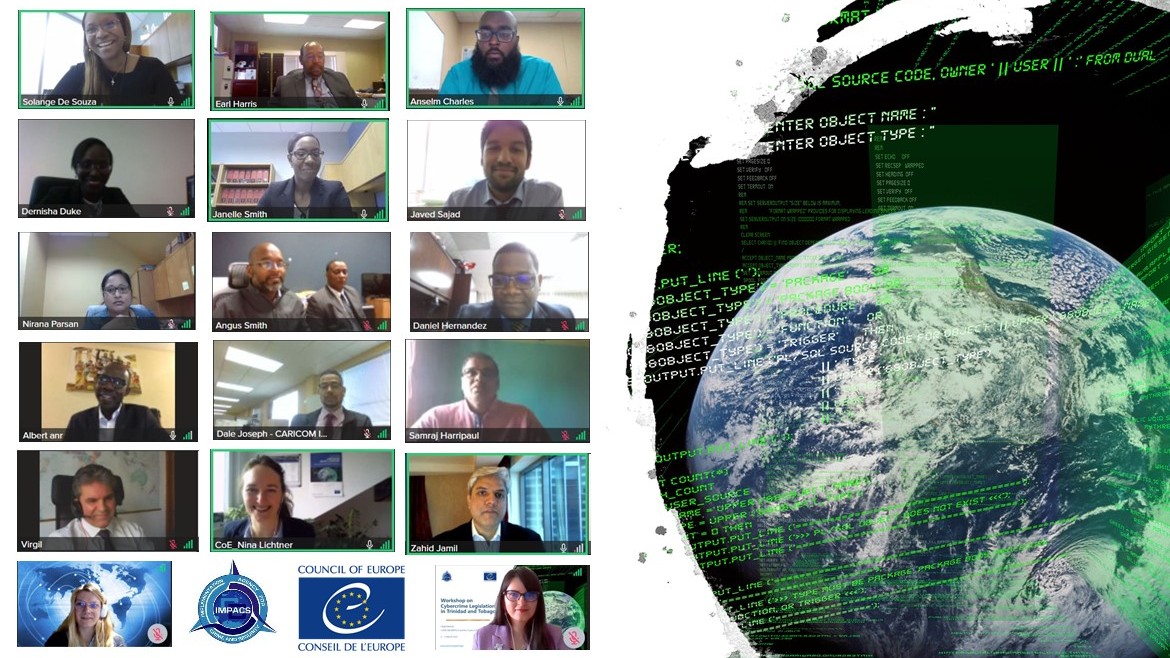Countries of the Caribbean region have taken steps in recent years to equip themselves with legislation to address the growing challenge of cybercrime. While in some states such legislation has been in place for more than a decade, others are in the process of reforming their laws. The Budapest Convention on Cybercrime has served as a global standard on legislation for States willing to adapt their domestic legislation.
In order to add impetus to the reforms, a series of domestic workshops on cybercrime legislation and electronic evidence are to be organised in the region by the Caribbean Community Implementation Agency for Crime and Security (CARICOM IMPACS) and the Council of Europe in the framework of the new Octopus Project.
The first online workshop on Cybercrime Legislation and Electronic Evidence was held between 2-3 March 2021 with national authorities of Trinidad and Tobago.
As the Government of Trinidad and Tobago is currently working on a new cybercrime legislation, the event served as an opportunity to further harmonise domestic legal response with international standards, bringing together more than 30 participants from national authorities of Trinidad and Tobago, the Caribbean Telecommunications Union, CARICOM IMPACS, international experts and the Council of Europe.
It was recognized that legislation is an important pillar in the protection of the rights of individuals and societies in cyberspace, and the criminal justice authorities need to strengthen their ability to investigate, prosecute and cooperate internationally on cybercrime. This becomes even more evident in the times when COVID-19 pandemic registered a steep increase in illegal conducts on cybercrime.
Through the Octopus Project, the Council of Europe will continue to provide support to countries in the Caribbean region for legislative alignment with international best practices based on the Budapest Convention on cybercrime as a global standard.
CARICOM IMPACS website
Octopus Project webpage



